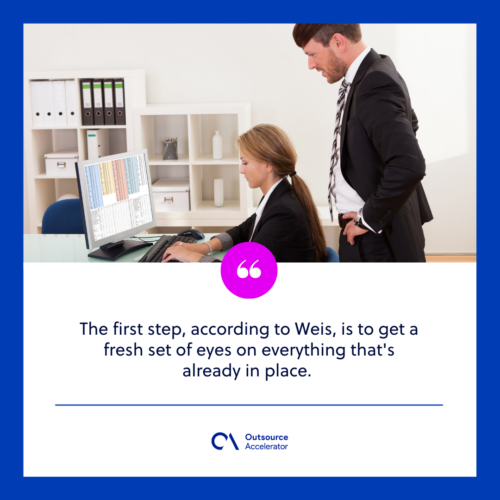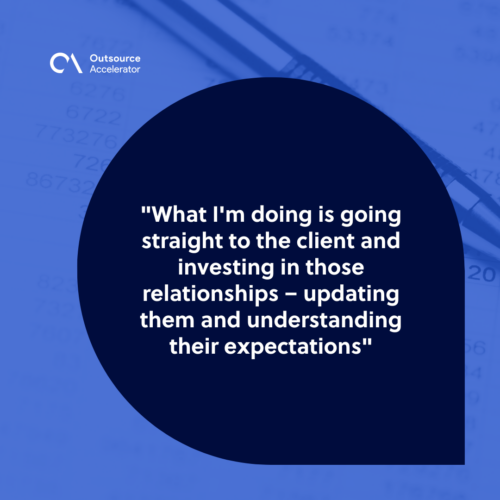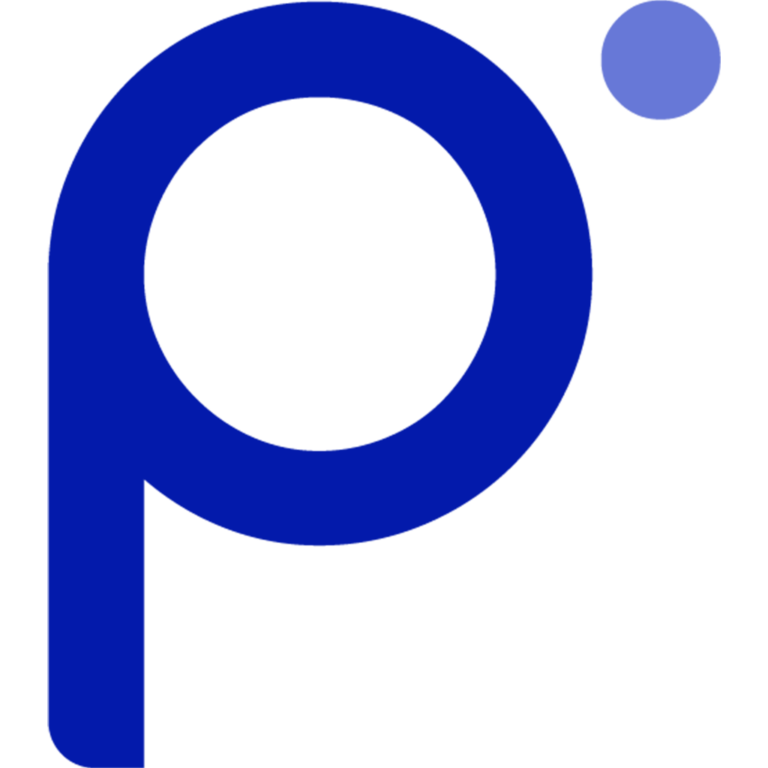Improving your accounting processes through outsourcing

Keeping your company’s books and financial information in order is crucial to keeping, well, your company. After all, business comes down to the numbers. If you do it yourself, you’re probably already painfully aware that all of that time is spent looking back over what’s already been done, leaving you with fewer hours in a day than you’d like to spend looking forward instead. Delegating can certainly help, but as your business grows, so does your staff. Vendors come and go, and accounting professionals do too. Tax procedures and regulations are replaced by new iterations, and the software you use to stay compliant changes, too. Before long, something just feels, well, off. Megan Weis, VP and General Manager – FAO Services here at Personiv knows exactly how you feel. She and her team regularly help clients take advantage of something few overwhelmed finance leaders consider: offshoring your bookkeeping doesn’t just save you money — you can actually improve accounting processes through outsourcing.
Choosing a BPO that can provide improved accountability
With so many benefits to outsourcing finance and accounting – a well-stocked talent pool to draw from; the significant decrease in cost; and built on a highly scalable model – we wanted to speak with Weis to see if outsourcing can go beyond filling a talent gap and strengthening a company’s bottom line. If anyone could provide the insight, it’s her.
A Six Sigma Green Belt, Weis has over two decades of experience in finance and accounting and the expertise to match. The Deloitte & Touche, Accenture and Everest Group alum has helped clients get to the root of messy accounting procedures and streamline them for efficiency – even when it isn’t top-of-mind.
“I don’t think most companies outsource to improve their accounting process,” she tells us right away. “I think they outsource because of the cost savings, or because they’re understaffed but can’t afford to hire or just can’t find enough of the right talent locally. Many companies probably don’t even realize they’re inefficient or lacking internal controls. They might have the feeling that they are, but don’t really know the extent of the problem.”
More: Fixing Your Reporting Headache: How Outsourcing Can Help
That’s how many companies begin to scratch the surface of what’s going wrong internally, or even how some companies realize for the first time that there’s a much easier way. But we wanted to know more about how good outsourcing partners play a role in bringing messy accounting processes up to snuff, and what that looks like from inside.
The accounting improvement plan you didn’t know you needed
The first step, according to Weis, is to get a fresh set of eyes on everything that’s already in place. Suppose you’re talking to a BPO about taking your accounting process offshore. Then you’re already part of the way there. A good partner, according to Weis, will help take you the rest of the way. “In the case of outsourcing,” explains the VP, “we do one thing, and we do it well – accounting processes. We see what works and what doesn’t, and since many of our employees come from world-class service shared service centers and bring that experience with them, we know what inefficiency looks like and can identify where a process is exposed due to a lack of internal control.”
Finance managers and company leaders will soon know, too, says Weis, assuming that they have a robust onboarding process that approaches the transition from in-house to offshore with the mentality of partnering with the client, as opposed to just shoehorning them in to fit a service package.

Step one: Lift and shift
“The first step in any outsourcing engagement is always to ‘lift and shift’ an existing process, no matter how screwy it may be. This is where we’re simply lifting the process out of an organization and moving it to our delivery center, where the goal is to learn how it’s done from the organization’s side. Once we understand the existing process, we can map it and look for ways to improve it.”
From the very beginning, then, Megan and her team approach client processes with something of a hybrid approach. First – and most importantly – as an extension of the existing financial team within a company, and then with the objective approach of a consultant or coach.
“Our managers are trained in Six Sigma, which is a disciplined, data-driven approach and a methodology for eliminating defects,” explains Megan, “so it’s second nature for them to look for ways to improve a process. Both Bryan [Salvador] [Operations Lead, Manila] and I are CPAs. We both began our careers as auditors, so we know how to dig deep and find the gaps in accounting processes.” Still, Megan emphasizes, “we never implement an improvement without first discussing it with our client and getting their approval.”
Step two: Knowledge sharing and ongoing accounting process documentation
Weis says that those initial stages in outsourcing are crucial, especially if you’re looking at ways to make your accounting department more efficient. As her team works, they’re documenting everything they do – mapping out processes, outlining strategies and just keeping a record of everything they see and how they respond to it so a client can be looped inappropriately. It’s often the most documentation that the company’s accounting process has ever generated, which is a sign unto itself that there are things that could go more smoothly.
More: Using A Finance And Accounting Outsourcing Provider: What To Expect
In fact, Weis calls a lack of existing documentation “the one red flag I see again and again. Many companies have processes that are inside people’s heads. When those people leave, things have a tendency to break or fall through the cracks. High turnover in these types of environments leads to major inefficiency because new people never get to fully understand the process without documentation to refer to.”
It’s why, when Megan and her team start to take on the accounting work of a company that partners with Personiv, they are able to implement a structure that simply hasn’t existed before.
“When a service provider begins to train with the client, they’ll also start drafting desktop procedures, and they’ll continue to do that all throughout delivery.” This part of the process also introduces the identification of key performance indicators (KPI), which both the client and the provider benefit from. “Many companies are not in the habit of measuring KPIs, but service providers have to be able to report on what they’re doing and why it’s working, so those metrics have to be figured out and communicated. It can also go a long way in identifying potential process improvements, whether that means making the accounting process more efficient by speeding things up or more effective by implementing controls.”
Step three: An ongoing conversation
Knowledge sharing, reporting on KPIs at regular intervals, and keeping updated documentation are all part of how Weis and her team ensure that Personiv’s clients are always in the loop. The constant communication Weis has with the offshore teams that are responsible for managing client processes is another major part. It also keeps the conversation between provider and customer from being overwhelmed by tedium.
“What I’m doing is going straight to the client and investing in those relationships – updating them and understanding their expectations – while Bryan manages the operations offshore. In turn, the two of us are in constant communication throughout the workday, resolving items and issues in real-time.” Weis believes that behaving like a partner provider is what allows for transparency and, ultimately, results.
“Many providers who cater to small and mid-size companies will force their clients to adopt the provider’s technology and processes, and we won’t. It’s better to work with what’s already in place and create a custom solution.” That extends to the CPAs and other employees Weis recruits to manage client workload. “We hire only the best,” she says, “even when it’s extremely urgent that we get a team together, Bryan and I won’t settle for anyone that we don’t feel is a great fit for Personiv and our clients.” By necessity, then, part of the client-facing work she does involves really hearing what a client needs from an outsourcing partner instead of just telling them what their new processes will look like.
It’s that communication – between Personiv’s clients and Weis, and then Weis and Salvador — that empowers our accountants to be proactive and work just as any in-house team would. The FAO VP sums it up: “our clients are buffered from anything other than having quality service delivered day-after-day.”

When to choose FAO for efficiency
Finally, we wanted to know what a company could be vigilant about if they wanted to implement outsourcing as a way to improve an existing accounting system in addition to experiencing the up to fifty percent savings outsourcing can provide.
There are always red flags to be on the lookout for, but Weis suggests companies check instead for a process that’s already working and explained what that would look like:
- A speedy close that doesn’t take more than five days to complete. “The fewer days, the better,” according to Weis.
- When you gauge the productivity of an accounting department, the morale is good. Specifically, says Weis, “accountants that aren’t overworked and low staff turnover are key.”
- Zero materials error and no instances of fraud.
- All of your accounting processes are well-understood and more importantly – well-documented.
Does this describe your accounting department? If not, that’s not a reason to panic — a lot of companies struggle with the end-of-month crunch or documentation gaps. But it is a sign you could benefit from the “lift and shift” that outsourcing with a partner like Personiv can provide. If you’ve already chosen to outsource, it could be a sign that you’re ready to choose a new one that can offer the best available talent and a wholly custom solution.
Want more FAO insights? Download our free whitepaper, The Winning Blueprint For An Efficient And Effective Finance And Accounting Team, and then head over to our Finance and Accounting Page to see how Personiv can build a custom solution or qualified team for your company’s specific needs.
Megan Weis is Personiv’s VP & General Manager of FAO and has over 20 years of industry expertise. She holds an MBA Megan holds an MBA from Duke University’s Fuqua School of Business and is Green Belt certified through Six Sigma. When she’s not working, she can be found testing Pinterest recipes in her kitchen, spending time with her two young children or working out at Orangetheory.
Connect with Megan on LinkedIn to read more of her insights or hear her talk about the predicted accounting talent shortage on MarketScale’s Software & Technology podcast:







 Independent
Independent




